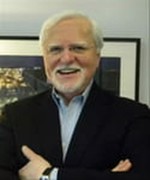When to Walk Out on a Sermon
- Updated Dec 13, 2017
On the morning of Sunday 19 May, 1940, Clementine Churchill returned early from a church service at St. Martin-in-the-Fields in central London, having walked out when the preacher delivered a pacifist sermon. Winston told her, ‘”You ought to have cried, ‘Shame!’, desecrating the House of God with lies!'” (Darkest Hour, by Anthony McCarten, p. 154)
It was Easter 1968. When Martin Luther King was assassinated, all of us–white and black alike–were hurting and confused, disturbed and concerned. That Sunday I preached a sermon that addressed racism in America. I was 28 years old and in the first year of pastoring Emmanuel Baptist Church of Greenville, Mississippi in the heart of the Delta. I’ve long since forgotten the sermon, but will never forget a phone call I received that afternoon.
Mrs. Glenn Powell called. She owned a beauty shop in town which I had quickly learned was gossip central. Mrs. Powell had made no secret of her unhappiness with my sermons or with me personally.
“Brother McKeever, what will you be preaching tonight?”
I told her.
“The reason I asked,” she said, “is I guess you noticed I walked out on your sermon this morning.” I had to admit that I had not noticed. Margaret used to say you could dynamite the back of the building while I was preaching and I’d not notice it.
She went on. “We get enough of the bad news all week. When we come to church, we expect some peace and quiet.”
Peace and quiet? Not in my church. Not in any self-respecting church that finds itself in the middle of a cultural revolution.
I have no memory of what I said to her. But life went on, she stayed in the church, never keeping her unhappiness to herself (but eventually finding herself in the minority, and discovering no one was paying any attention to her), and God blessed our work.
A question for a church member to consider: What would have to happen in order for you to walk out of church in the middle of a sermon?
My wife once walked out in the middle of a sermon I was preaching on the home. In the counseling office, she told the therapist I was preaching things I was not living up to and she could not take it. She was right. I had a lot of adjusting to do in order to save our marriage. (I’ve written on these pages of our sessions with a pastoral counselor that took place over a full year.)
When I asked a number of friends “Have you ever walked out in the middle of a sermon? and why?” the answers quickly came in and fell into three groups…
–Most said, “No, but I wish I had.” The guest preacher was boring, boring, boring, and taking two or three times the allotted time for the sermon. The guest preacher began harassing the church for some failure or other.
–A few told why they did walk out. The reasons included a) the preacher was addressing people by name from the pulpit and condemning them for their failures, b) the preacher was preaching a political agenda and not the gospel (one was preaching the political party’s platform), and c) bad doctrine.
–Some pastors told how they had aborted their sermons in the middle, basically walking out on their own preaching. They’d gotten off track, or had ventured into some area where they had no business, or could tell the people had long since left them and gone home mentally.
The issue is not cut and dried.
My mentor, Dr. James Richardson, told me of the time the venerable Vance Havner preached a revival in his church. “He was awful. Negative, miserly, like a scrooge in the pulpit. He criticized everyone and everything.” James said, “I wished I’d shut down the meeting, paid him, and sent him on his way.”
Why didn’t he? The answer to that is muddled. James was the nicest man on the planet and would do nothing to hurt another human. Some in the congregation would not have understood and he would have to try to explain his actions, and that would create more division or confusion. So he made a calculated decision to ride out the meeting and never again to invite Dr. Havner.
Leaders of the congregation should not walk out. Ever.
The fact is we can do a preacher a favor sometimes by getting up and walking out on his preaching. But only if we are not a leader of the church. Walking out is a no-vote, a visible expression of unhappiness over what is being preached. And it should be done only by someone with no other way of making the point.
But not leaders.
Congregational leaders have a higher responsibility, to safeguard the flock, to keep the church healthy, and if necessary, to hold the pastor accountable. Therefore, leaders of the congregation who are unhappy with a sermon will want to do the following…
–Stay with the bad sermon, whether the preacher is the pastor or a guest. Remain in the pew, paying attention to what is said and to people’s reactions.
–Take good notes. You will want to go over them with the pastor later, and will need to have them handy.
–Listen to comments of the people following the service. Hear, rather than speak. Tell no one how upset you are.
–Leave the matter alone for 24 hours, asking the Father for direction. Make sure you are not over-reacting or doing anything impulsively.
–Check with two or three of the most astute members of the congregation to find out their thoughts. If they were not concerned, ask if they think you are over-reacting. Pay close attention to their counsel.
–If the Holy Spirit green-lights this, make an appointment with the pastor. Go in humbly and sweetly, but alertly (“wise as serpents; harmless as doves”). If the others you consulted feel equally concerned, ask one to accompany you.
–Do not go with an agenda. Do not demand anything. Go with one thing on your mind: to get the pastor’s reaction. You want to know how he felt about what was said, what it means, and what he intends to do about it.
–At the end, thank him, pray for him, and leave. Then, seek the Lord on this.
Leaders of the congregation must be people of courage and wisdom. Sometimes, as I tell deacons in our retreats, the person you have to confront is the pastor himself. That is no fun and should be done with great care. But when necessary, it should be done quickly and firmly.
God bless His church.



















